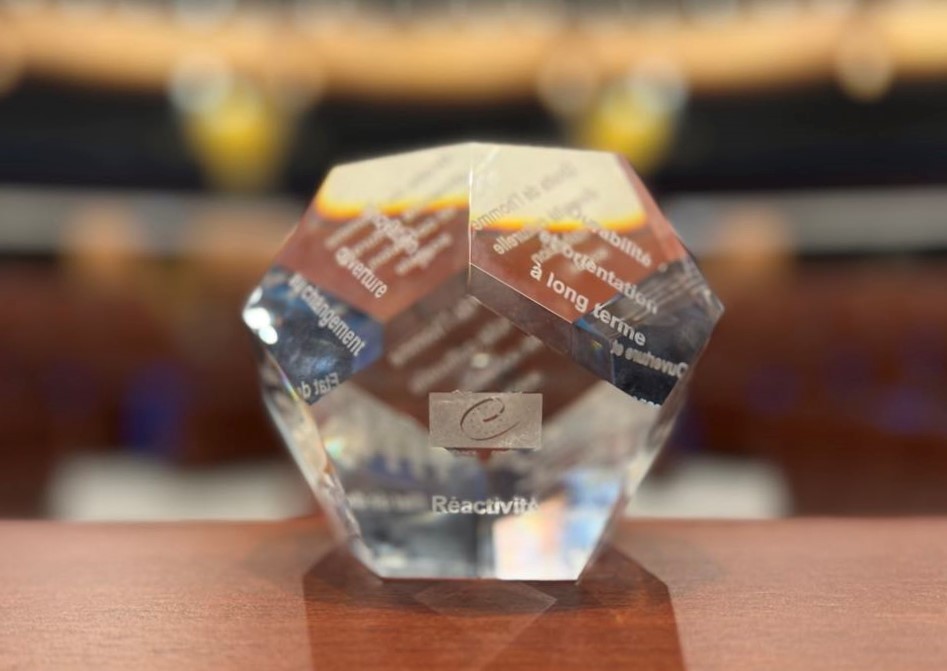The European Label of Governance Excellence (ELoGE)

ELoGE celebrates and helps local and regional authorities improve their governance, through a self-assessment tool in the form of a comprehensive European Good Democratic Governance Benchmark and a series of questionnaires aimed at citizens, elected representatives, and local officials. The present guide outlines the assessment methodology developed to ensure an objective evaluation of the results.
The European Good Democratic Governance Benchmark has been developed from the CM/Rec(2023)51 and its explanatory memorandum.
Following the Reykjavik Summit, responsibility for ELoGE has been transferred to Congress and the first meeting of the new ELoGE Accreditation Platform established under the aegis of the Congress Bureau took place on 11 September 2024.
[1] CM/Rec(2023)5 - Recommendation of the Committee of Ministers to member States on the principles of good democratic governance and its explanatory memorandum
How it works
ELoGE works on the principle of subsidiarity.
A body, such as a national association of local and regional authorities, establishes a national ELoGE Stakeholders’ Platform composed involving the association of local/regional authorities, civil society actors, representatives from central / regional authorities, academia, independent experts etc.
They should then complete the ELoGE Accreditation Request form and submit it to the ELoGE Accreditation Platform via the secretariat of the Centre of Expertise for Multilevel Governance.
The procedure is set out in the regulations, and an application form can be found here.
ELoGE Accreditation
The ELoGE Accreditation Platform is the Council of Europe body responsible for granting accreditation to deliver ELoGE and overseeing implementation by the accredited entities.
ELoGE relies on a partnership between the Congress and an existing reputable regional, national or transnational entity or an ad hoc platform with a substantive know-how, expertise or experience in the field of good democratic governance at the local level.
The ELoGE Accreditation Platform meets twice a year en marge of meetings of the Congress Bureau to assess accreditation requests and take stock of implementation in member states.
Entities or platforms composed of organisations such as National Associations of Local and Regional authorities can request accreditation to implement ELoGE. If the ELoGE Accreditation Platform of the Congress agrees that they meet accreditation criteria, the entities concerned are given the responsibility to implement ELoGE with municipalities of a given region or member state.
1st ELoGE Accreditation Platform meeting – 11 September 2024
ELoGE Benchmark
The ELoGE Benchmark is a self-assessment tool composed of 12 Principles; 36 Targets; and 72 Indicators.
Each of the 12 principles has been broken down into three Targets based on criteria set out in the Explanatory Memorandum to CM/Rec(2023)5.
Each Target has been further sub-divided into two detailed Indicators, which represent measures or activities contributing to attainment of the respective Target.
ELoGE Implementation
Prepare an implementation plan that includes the following steps:
- Awareness raising
- Call for expressions of interest from municipalities
- Capacity-building / information sharing
- Organise workshops / information exchanges to inform participating municipalities on how self-assessment process
- Self-assessment – local authorities apply the benchmark, conduct the questionnaires, and submit the dossiers to the National ELoGE Stakeholders’ Platform
ELoGE Awards
- Evaluation and awarding phase
- National ELoGE Stakeholders’ Platform reviews submitted applications and decides which municipalities meet the criteria for the award of ELoGE.
- Local authorities who have demonstrated that they have achieved a high level of good democratic governance are awarded ELoGE in the form of a crystal dodecahedron – one side for each for the 12 Principles of Good Democratic Governance
- Reporting phase
- Inform ELoGE Accreditation Platform and share details of local authorities who have been awarded ELoGE.




